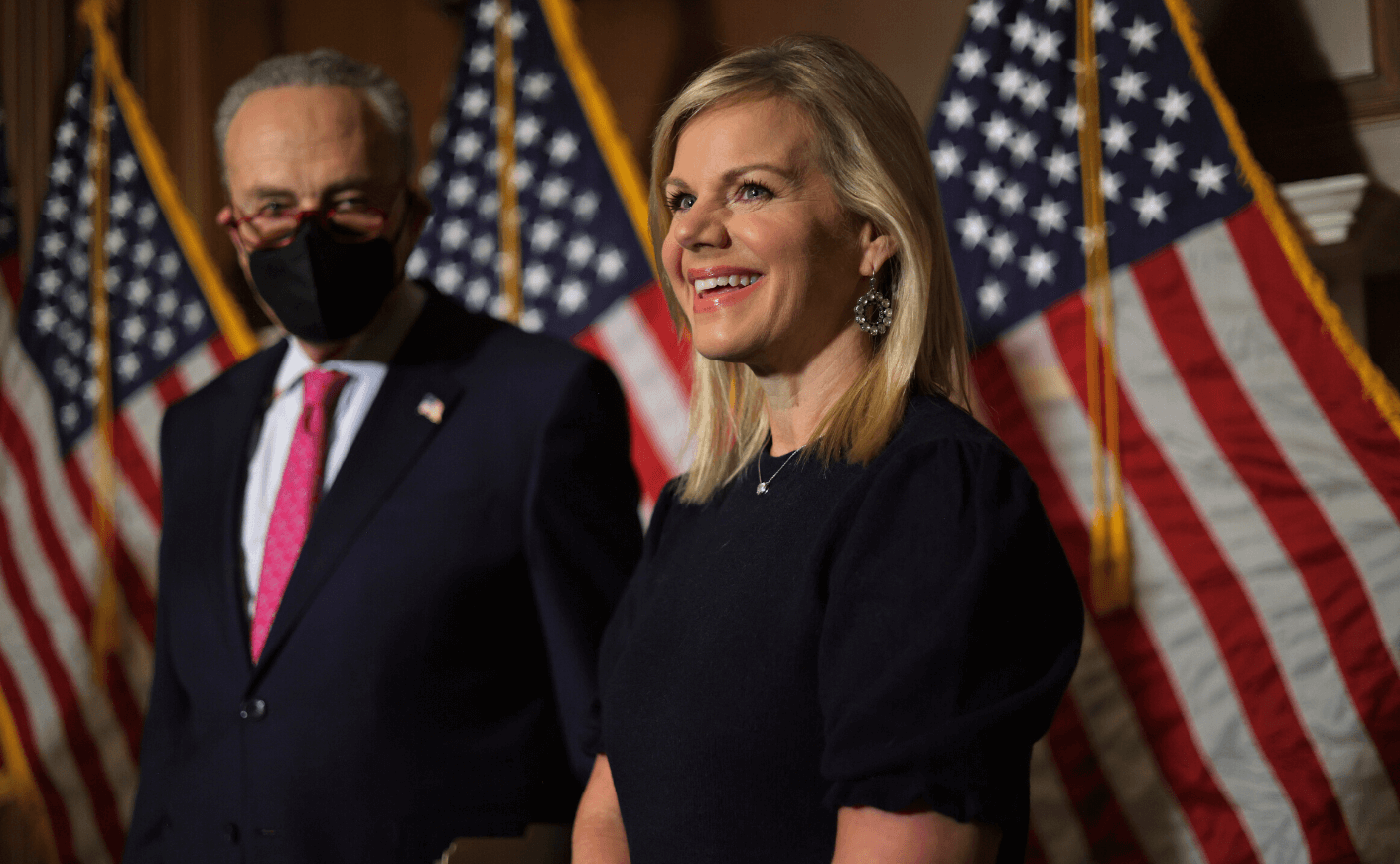The Me Too movement brought to light predators in various industries who’d used their power and influence to harass, assault, and prey on women — often with no repercussions. That was allowed to continue, in some cases, by the fact that victims had been forced by their employers to sign airtight non-disclosure agreements (aka NDAs) that prohibited them from publicly talking about what they’d experienced, or pursuing legal action against the perpetrators. But a major change was just enacted that may protect potential victims for decades to come — not just ones in high-profile positions either, but millions of employees across the country.
On March 3rd, President Biden signed the Ending Forced Arbitration of Sexual Assault and Sexual Harassment Act, which prohibits companies from using forced arbitration involving claims of sexual assault. Who helped push the bill through? Former Fox News anchor and founder of Lift Our Voices, Gretchen Carlson, who’s been championing the issue since 2017, after settling her own sexual assault case against Fox CEO Roger Ailes.
Katie spoke with Gretchen about the act, and what this change means for employees everywhere.
Katie Couric: Gretchen, before we talk about this important legislation, can you tell us why it was needed in the first place?
Gretchen Carlson: Yes, because people have no idea what they’re signing in their contracts. I didn’t even know what the forced arbitration clause meant in my own contract. Around 30-40 years ago, companies realized they could air their dirty laundry human-rights cases from within the company, through forced arbitration. Forced arbitration means that a problem cannot be raised through the open court system: You have to go through a private court system, where there are no appeals. The company also picks the arbitrator for you, and since arbitrators are retired judges and lawyers who tend to be older white guys, it’s often not a jury of your peers.
Then, because nobody at work knows about the case, the perpetrator often gets to keep their job, and often the person who raised the issue is shunned out of the workplace for doing nothing wrong except having the courage to come forward. The stark reality, Katie, is that some of these people who’ve gone through this process — and it’s millions of people — never work in their chosen profession ever again.
KC: Why?
GC: Because when you try to get another job, the new employer may ask, “Why did you leave your last company?” and if you respond, “I really can’t talk about it,” it makes you look sketchy and you also often can’t get a referral. So this process is pushing out the very people that companies want to retain for their bottom line, meaning a more diverse workforce including women and people of color.
KC: Tell us about the ending of the forced arbitration of sexual assault and sexual harassment act, which passed on March 3rd. It was the biggest labor law change in over 100 years.
GC: I’ve been fighting for this for the last five years, since my own lawsuit, because I started hearing from all these women across the country who had been forced into secret arbitration and their stories never were told. I started walking the halls of Congress and I knew it had to be bipartisan in order for it to pass, and I just started rallying the troops on both sides.
We reintroduced the legislation this past July and it really gained a lot of momentum, because it was kind of like, “Raise your hand if you’re in favor of silencing women who are assaulted or harassed in the workplace,” and nobody wanted to raise their hand.
In February, it passed with huge bipartisan support in the house. In the Senate, I needed 10 Republicans for it to pass. I got those 10 Republicans and three days later it passed in the Senate, and I just cried tears of joy. On March 3rd, I was with President Biden and Vice President Harris at a public signing ceremony and it was one of the greatest days of my life — not for Gretchen Carlson, but for the millions of workers that I have helped through this legislation.
KC: I think when people hear about arbitration clauses, they often think of high-profile names, people who were identified by the Me Too movement, but this will impact millions of workers across the country in low-wage or hourly jobs too, won’t it?
GC: I think initially the general public thought it was only famous actresses and well-known journalists who were facing harassment, but it’s everywhere. In fact, the more disenfranchised you are, the greater likelihood you have of having a forced arbitration clause in your contract. That’s the reality.
At my nonprofit Lift Our Voices, we’re trying to get rid of both forced arbitration and NDAs for toxic workplace issues. We believe those are the two silver bullets to equity in the workplace. There’s a lot of talk about fair pay and promotion, but as long as we continue to silence our workers, we’ll net ever get to equity because you’re signing away your ability to talk about your pay or discrimination. And so these are the two mechanisms that we are trying to get companies to eliminate. Had my lawyers not figured out a way to sue Roger Ailes at Fox News personally, you would’ve never known about my story. And we arguably would not be in this movement right now.













